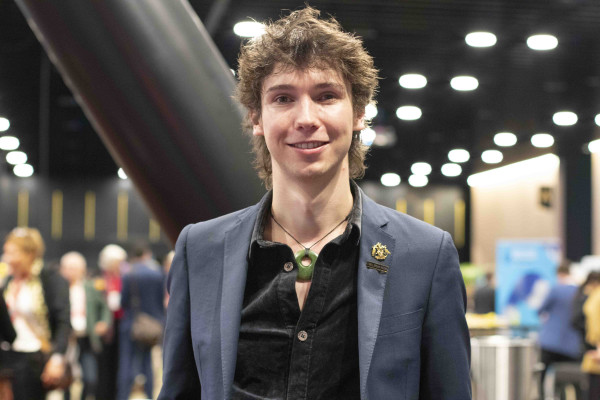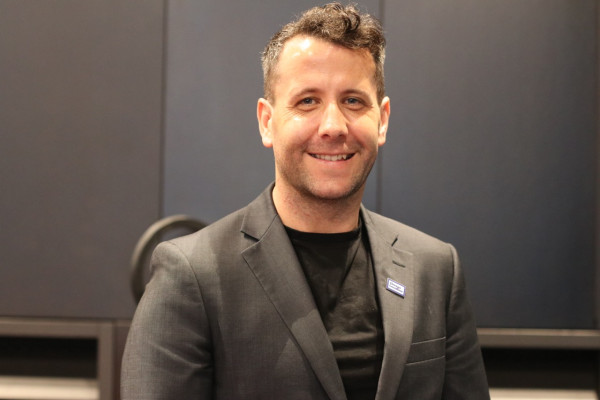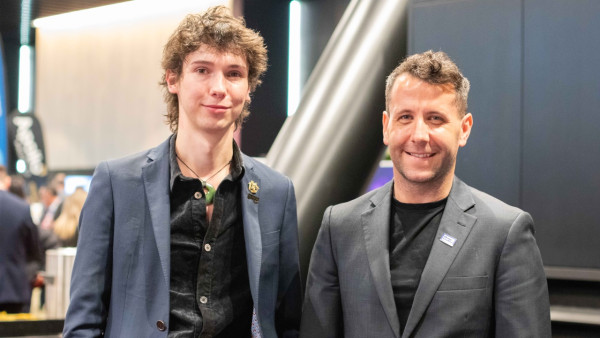Being a local government councillor isn’t just a job for old people anymore. Since 2016, the number of councillors elected under the age of 40 has doubled.
Since 2001, there’s also been a big boost in the number of 18-25 year olds voting in local elections, according to data from Local Government New Zealand (LGNZ), the association that represents councils across the country.
But just because we’re electing more young people in local councils doesn’t mean more young people are running as candidates.
The LGNZ data also showed in the past three local government election cycles, only 12-13% of candidates have been under the age of 35.
So what’s stopping more young New Zealanders from wanting to be local councillors?
Meet Campbell Barry and Rohan O’Neill-Stevens
Campbell Barry is 33 years old and was elected as the mayor of Lower Hutt in 2019, becoming the youngest mayor in New Zealand’s history. He is also the vice president of LGNZ.
Rohan O’Neill-Stevens (Ngāti Apakura, Tainui) is 24 years old and the deputy mayor of Nelson. He was first elected as a councillor when he was 19, making him the youngest Nelson City councillor ever.
Re: News spoke with the two councillors about what it’s like being a young person in politics and what barriers might stand in the way of more young people joining them.

Rohan O’Neill-Stevens is the deputy mayor of Nelson. Image: Re: News.
What motivated you to run for local government?
Rohan says he was motivated to run because he had returned home after two years overseas and found “not much had changed”.
He says what candidates were talking about did not reflect the conversations he was having in his community about climate change, investment in public transport and making Nelson more accessible.
Rohan describes becoming a councillor as an “accident” and says he didn’t expect to be elected because of his age.
Campbell says he first became interested in the role of local councils during high school, when a creek in Wainuiomata had a water quality issue and his year 13 geography class was sent to do testing and understand how water infrastructure works.
After working at a foster kids’ camp in New York, he says he returned home and ran for the Lower Hutt Community Board which helped expose him to how council works.
The lack of diversity in his council at the time motivated Campbell to run, he says.

Campbell Barry is the mayor of Lower Hutt. Image: Re: News.
Lack of youth engagement can be a barrier
Rohan says a lack of engagement with young people outside of election periods is one barrier.
“We need to make sure that councils are being way more proactive… recognizing that traditional methods of engagement aren't where young people are, and actually meeting them where they are for those conversations,” he says.
That could look like being on TikTok and avoiding sending out long consultation forms written using complicated language, he says.
Campbell says an example of good engagement was Porirua City Council allowing people to submit selfie-style videos to give feedback on the council’s long-term plan, which significantly boosted participation.
Rohan says councils always refer to ratepayers when discussing who will be impacted by local issues, which can also alienate young people who rent.
Pay is another barrier
Rohan says he was getting paid $45,000 during his first term as a councillor, which after getting taxed at 33%, left him with a take-home pay less than minimum wage.
He says the time he spent on councillor duties varied between 20-80 hours per week.
“The challenge you have is, it's a job that has demands at all times of the day, it's not always a consistent schedule,” he says.
“No one's doing it for the money. But at the same time, it does provide challenges.”
Local Government New Zealand chief executive Susan Freeman-Greene agrees, saying: “Remuneration continues to be a major barrier for people to enter and stay in local government”.
“It can mean people need other jobs or sources of income to make ends meet.”
Unlike central government politicians, people elected to local councils are not eligible for KiwiSaver contributions which is something LGNZ is advocating to change, Freeman-Greene says.

Rohan and Campbell at SuperLocal, the LGNZ conference held across August 21-23 in Wellington. Image: Re: News.
Campaigning challenges
Campbell says the “perception or reality of the cost of standing for election” can be a hurdle for young people or those who don’t have the financial means.
He says he knows some elected members who have spent $100 campaigning while others have spent much more — he himself spent $55,000.
Campbell says it’s important for young candidates to build a team around them and get good advice instead of going at it alone, which can be “quite challenging and quite brutal”.
Rohan says young candidates might run the risk of branding themselves as solely representing young people but it's important to not limit yourself.
“I always joke that I wasn't elected by young people by any means, I was elected by like, middle-aged people and my most passionate campaigners were all over the age of 65,” he says.
“It's important to have young voices. But actually, we don't just represent young people.”
What are the hardest parts of being a young person on council?
Rohan says being pigeonholed into giving his opinion on ‘youth issues’ could be frustrating, especially because young people are not a homogeneous group who all have the same perspective.
He says there was also a “deep frustration with being written off” and “knowing people’s perception of your competence is so much lower simply because of your age”.
Campbell says being on social media can create its own set of challenges.
Young people who have grown up putting everything online might worry how their digital footprint can affect their careers but he says it shouldn’t put someone off from running and there are support mechanisms for councillors dealing with online criticism.
What are the best parts of being a young councillor?
Campbell says the best thing about his job is “some of the small changes you can make, [you] can make a real difference for people's day-to-day lives”, like making changes to parks, pools and reserves.
For Rohan, he says because he isn’t a “50-year-old man in a suit” his young age makes it easier to engage with people who don’t trust the political system or have been disengaged from it.
“You can get these really fruitful conversations… Ultimately engaging people who will otherwise be left out of the conversation.”
More stories:
Gun reform: Hear two sides of the argument
Concerns the ban on semi-automatic weapons will be lifted when the Government rewrites the Arms Act.
Should NZ have public holidays to celebrate multiculturalism?
A migrant organisation wants New Zealand to recognise it’s multicultural.
Rising obesity and discrimination: What Asian NZers’ health looks like
Four facts from the latest health report about Asian New Zealanders.